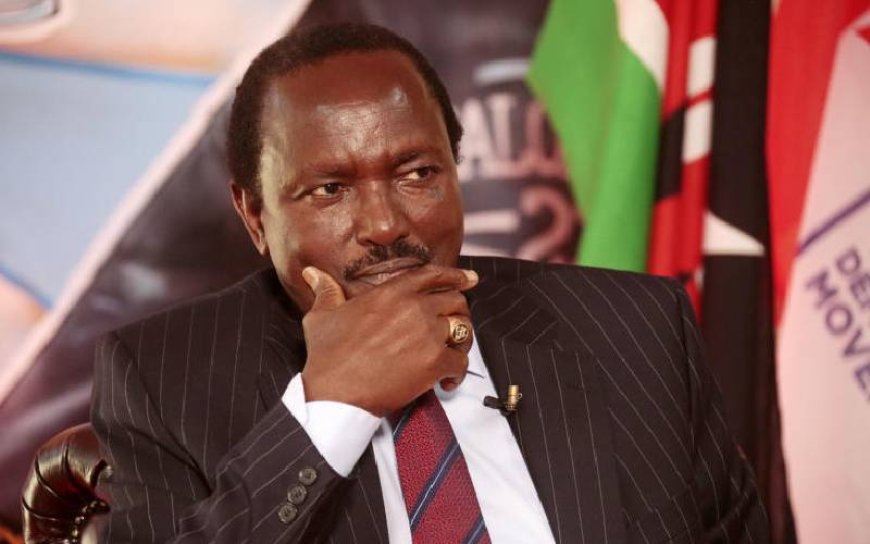Kalonzo Musyoka speaks out against controversial JKIA deal

By Robert Mutasi
Wiper Party leader, Kalonzo Musyoka, has vehemently rejected ongoing negotiations between the Kenyan government and India's Adani Group for control of Jomo Kenyatta International Airport.
Musyoka addressed the media after adjourning a court hearing on November 11, 2024.
He said the government must go back to the drawing board on the deal, arguing that Kenya had the capacity to expand its flagship airport.He was flanked by DAP Party leader Eugene Wamalwa.
"This is a state capture. The Adani deal is shrouded in secrecy. We are determined to fight for the current and future generations to ensure transparency," an impassioned Musyoka said, adding that national infrastructure should not fall into the hands of foreigners.
His concerns join a wider debate over the strategic and economic implications of allowing a foreign company significant control over one of Kenya's major transport hubs.
Because the presiding judge was not available, the case that was set for Monday could not take place.
Consequently, the aviation-related hearing has now been scheduled for November 27, while the case filed by the Law Society of Kenya is expected to start in December.
The adjournments notwithstanding, the existing court orders barring the execution of the deal remain valid until a final determination.
In fact, Eugene Wamalwa echoed Musyoka's sentiments, cautioning on the possible repercussions should Adani Group win and take over JKIA.
"If Adani controls JKIA, they paralyze our country," he said, with the stakes high in terms of national sovereignty and economic independence regarding the current case.
The deal has taken a beating in the public domain and in the realm of political discourse, amid concerns that it is not transparent and could compromise Kenya's autonomy over key infrastructure.
Their involvement in the deal as representatives for aviation workers further underpins the deals' many implications for employment and operations at JKIA.
An added level of complexity to the case was the lodging of a preliminary objection challenging the jurisdiction of the court to hear the case.
Hence, the addition of another legal layer of complexity has marked waiting times for the next developments on the matter.
Musyoka's and Wamalwa's comments are part of a broadening call for scrutiny and transparency in major national deals.
In fact, this delay in court proceedings keeps eyes on the broader implications of the Adani agreement and what it represents regarding Kenya's economic sovereignty.
What's Your Reaction?


































































































































































































































































































